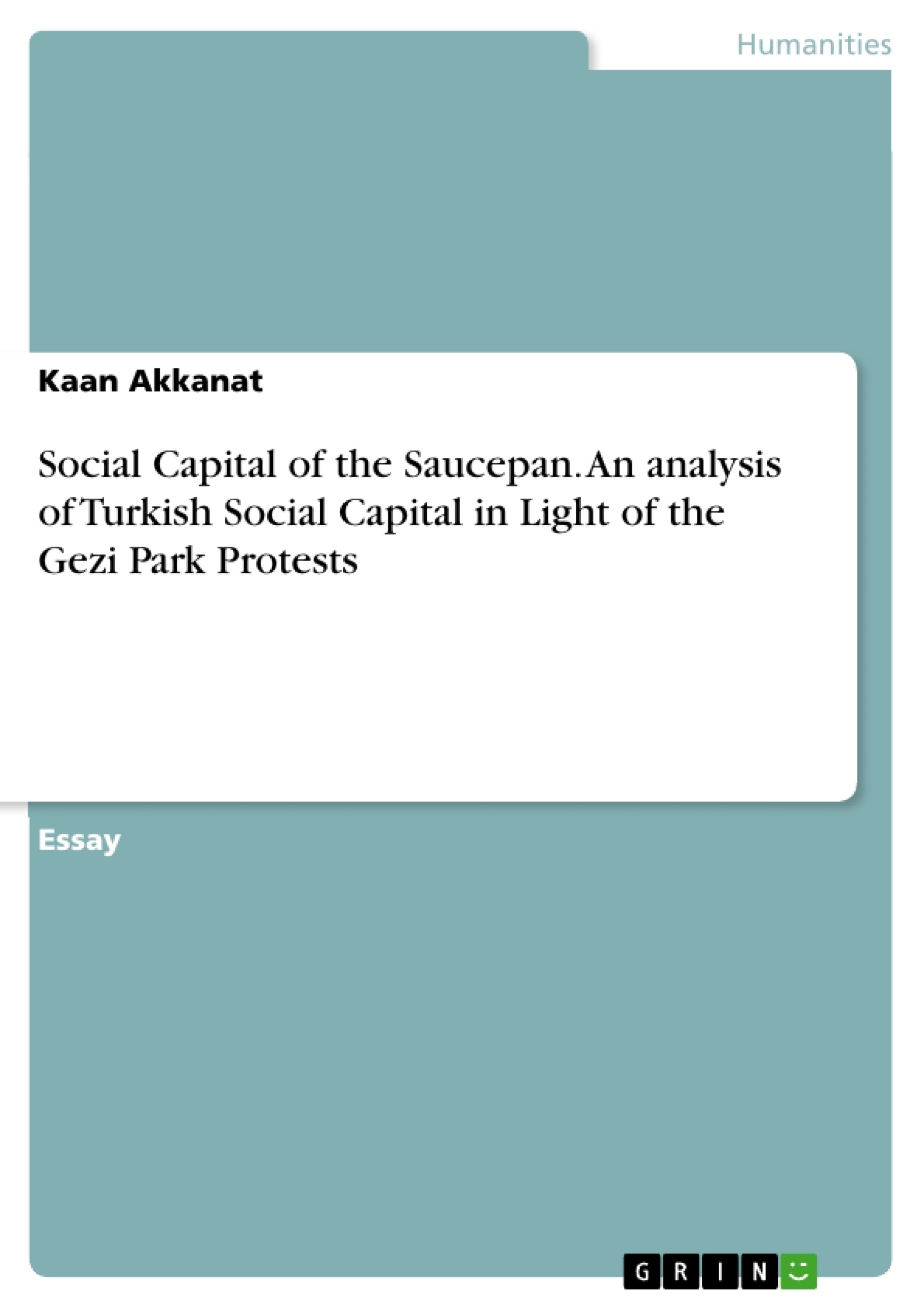As a multidimensional concept which has been shaped cumulatively by various social scientists, social capital can be considered as an end-social product of the interplay between various factors such as trust, norms and civic networks. Together with all of its components, social capital is one of the biggest - if not the biggest- determinant of social cohesion. In this context, present paper aims to provide a discussion by applying analogic causality, social capital and social cohesion into the case of Turkey.
Turkey, as a social capital-low country, has been the stage of one of the most influential collective actions of our decade with the massive protests in Taksim Gezi Park, which reshaped the underlying social fractions within the country. After outlining the fundamentals of the concepts and events, the discussion will be further enriched with reflections on the driving factors of the protests and their relation with the country’s social structure.
Inhaltsverzeichnis (Table of Contents)
- Introduction
- Placing the Fundamentals: Social Capital, Social Cohesion and Trust
- Gezi Parki Protests and Turkey
- Relating Social Capital and Gezi Parki
- Conclusion
Zielsetzung und Themenschwerpunkte (Objectives and Key Themes)
This paper aims to analyze Turkish social capital in the context of the Gezi Parki protests. By examining the concepts of social capital, social cohesion, and trust, the paper explores the factors contributing to the protests and their relationship to the country's social structure.
- The multifaceted nature of social capital and its influence on social cohesion.
- The significance of trust as a key component of social capital and social harmony.
- The Gezi Parki protests as a manifestation of low social capital and trust in Turkey.
- The role of social capital domains in shaping the Gezi Parki movement.
- The potential for further analysis of the Gezi Parki protests from various social and political perspectives.
Zusammenfassung der Kapitel (Chapter Summaries)
The paper begins by defining and discussing the concepts of social capital, social cohesion, and trust, highlighting their interrelationships. It then introduces the context of the Gezi Parki protests in Turkey, emphasizing the country's low levels of social trust and social capital. The paper further examines the evolution of the protests and how they reflected a broader discontent with the government's policies.
Chapter 4 explores the connection between social capital and the Gezi Parki protests, examining how the lack of empowerment, limited involvement opportunities, and social polarization contributed to the movement. The paper also emphasizes the role of trust deficiency in fueling the protests and its implications for social cohesion in Turkey.
Schlüsselwörter (Keywords)
This paper examines social capital, social cohesion, trust, Gezi Parki protests, Turkey, government policies, social polarization, discontent, and democratic participation.
Frequently Asked Questions
What is social capital in the context of Turkey?
Social capital is a multidimensional concept based on trust, norms, and civic networks. Turkey is characterized as a "social capital-low" country in this analysis.
How do the Gezi Park protests relate to social capital?
The protests are seen as a manifestation of low social trust and a reaction to social polarization and a lack of democratic participation opportunities.
What role does trust play in social cohesion?
Trust is a key component of social capital; a deficiency in trust can fuel collective action and impact the overall stability and harmony of a society.
What were the driving factors of the Gezi Park movement?
The analysis points to discontent with government policies, social fractions, and a lack of empowerment as major catalysts for the collective action.
What is "analogic causality" in this paper?
The paper applies analogic causality to link the theoretical concepts of social capital and cohesion directly to the specific case study of the Turkish protests.
- Quote paper
- Kaan Akkanat (Author), 2013, Social Capital of the Saucepan. An analysis of Turkish Social Capital in Light of the Gezi Park Protests, Munich, GRIN Verlag, https://www.grin.com/document/292753



